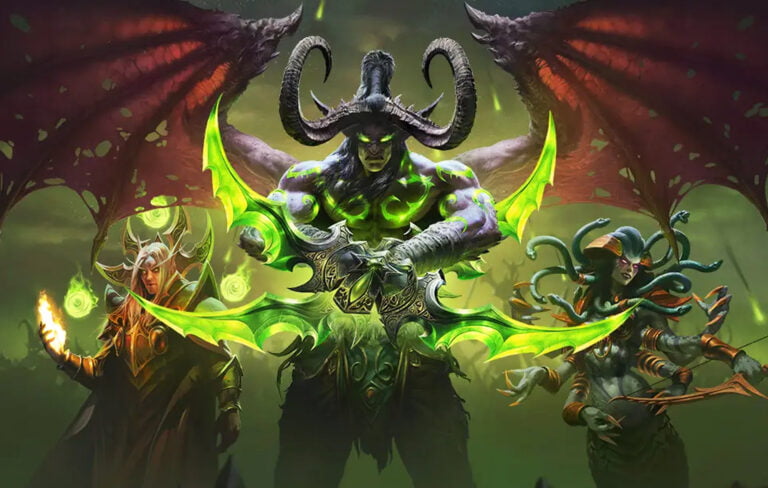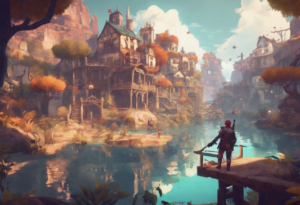Have you ever wondered how games are categorized? Well, video game genres do just that – they categorize games based on their core gameplay mechanics, setting, story, and other relevant factors. It’s like putting them into neat little boxes, making it easier for us to find games that suit our tastes.
Now, the thing about game genres is that they’re not set in stone. They’re flexible, and new genres are continually emerging due to the ever-evolving nature of the gaming industry. It’s exciting to see what new types of games developers will come up with next!
So, what are some of the most popular game genres out there? Well, we’ve got action games, adventure games, and role-playing games (RPGs), just to name a few. But, the popularity of these genres varies among regions, and game developers often blend different genres to create unique gameplay experiences.
At Tolma4 Team, we’ve sorted through the crowd and brought you the top 15 game genres you’ll find today. Whether you’re into first-person shooters, puzzle games, or sports games, we’ve got you covered. So, grab your controller and let’s dive into the wonderful world of gaming genres!
Game Genres by Popularity
Action
If you’re a gamer who loves adrenaline-pumping action, then action games are probably right up your alley. In fact, they’re arguably the most popular game genre in the industry. When you play an action game, you can expect to experience high-intensity gameplay that often includes fast-paced battles, acrobatic maneuvers, and intense boss fights.
One of the defining features of action games is their platforming elements. These games require players to navigate complex environments, which often involves jumping, climbing, and swinging through various obstacles. You’ll need quick reflexes and good hand-eye coordination to succeed in these games.
When it comes to combat, action games don’t disappoint. Players typically control a character who is armed with various weapons, tools, or abilities, allowing them to take on enemies and solve puzzles. The combat in action games is often fast-paced and frenetic, with players having to think on their feet to survive.
Action games come in a wide variety of styles and sub-genres. You’ve got open-world sandbox games like Grand Theft Auto, where you can explore a massive virtual city and cause chaos. Then there are first-person shooters like Call of Duty, where you can jump into online multiplayer matches and compete against other players from around the world.

Adventure
If you’re looking for a gaming experience that’s all about immersing yourself in a rich and immersive world, then adventure games are the perfect genre for you. Adventure games are story-driven, and players usually control a protagonist who interacts with the environment and other characters to uncover the game’s mysteries.
The gameplay in adventure games is all about exploration and discovery. These games typically have complex environments to navigate, and players must interact with other characters to solve puzzles and uncover the game’s story. It’s all about immersing yourself in a world of adventure, where every corner holds a new mystery to solve.
Adventure games come in many different flavors, from classic titles like The Legend of Zelda and Tomb Raider to newer releases like Uncharted and The Last of Us. These games are known for their rich storytelling, memorable characters, and stunning visuals, transporting players to a world of adventure and discovery.

RPG
Are you ready to step into the shoes of your favorite character and experience their story from their perspective? If so, then role-playing games (RPGs) are the genre for you. In RPGs, players take on the role of a character and embark on an epic journey through a deep and immersive storyline.
One of the defining features of RPGs is the extensive character customization options. Players can choose everything from their character’s appearance and abilities to their personality and backstory. This level of customization allows players to truly immerse themselves in the game’s world and feel like they are part of the story.
In RPGs, players can expect to engage in intricate quests, challenging battles, and explore vast open-world environments. These games often have complex and engaging storylines that unfold throughout the game, with every decision the player makes impacting the game’s outcome.
Some of the most popular RPGs include titles like The Elder Scrolls, Final Fantasy, and World of Warcraft. These games are known for their intricate worlds, complex characters, and engaging storylines that keep players coming back for more.

Fighting
Fighting games pit players against each other in intense battles where strategy and skill are key to victory. In these games, players typically control a character with unique moves and abilities, each with their own strengths and weaknesses. The gameplay revolves around defeating your opponent using a combination of well-timed attacks, blocks, and special moves.
Some of the most popular fighting games include Street Fighter, Tekken, and Mortal Kombat. These games are known for their fast-paced gameplay, challenging AI opponents, and the ability to play against other players online.
Fighting games require quick reflexes, excellent timing, and a deep understanding of your character’s moves and abilities. Players must master these skills to become a formidable opponent and climb the ranks of the game’s competitive scene.
Whether you prefer classic 2D fighting games or more modern 3D titles, the fighting game genre offers a unique and challenging gameplay experience that keeps players coming back for more.

MMO
MMOs, short for massively multiplayer online games, are the perfect choice if you’re looking for a gaming experience that allows you to interact with thousands of other players in a persistent virtual world. These games offer a rich and immersive experience that allows players to form deep connections with other players and the game’s world.
In MMOs, players can create their own character, join guilds or factions, and engage in a wide range of activities with other players. They can explore vast, open-world environments, complete quests, and engage in player-versus-player (PvP) battles. Some of the most popular MMOs include World of Warcraft, EVE Online, and Guild Wars 2.
World of Warcraft, in particular, has been a dominant force in the MMO space for over a decade and has amassed a massive player base. EVE Online, on the other hand, is known for its complex and intricate gameplay mechanics, which revolve around a player-driven economy and political system.
MMOs offer a unique gaming experience that allows players to forge deep connections with other players and the game’s world. Whether you prefer PvE-focused gameplay or intense PvP battles, there’s an MMO out there for you.

Sports
If you love sports, you’ll enjoy sporting games. Sports tournaments simulate real-life sports activities, from basketball to soccer to football. Players can control a team or an individual athlete and compete against other teams or players. Popular sports tournaments include FIFA, NBA 2K, and Madden NFL.
Survival tournaments
Survival tournaments challenge players to survive in a hostile environment, often with limited resources and against dangerous creatures or other players. Players must scavenge for food, water, and shelter and defend themselves against threats. Popular survival tournaments include Minecraft, ARK: Survival Evolved and Rust.
Conclusion
FAQ
Common translation mistakes include literal translations that ignore context, overlooking cultural nuances, and failing to account for regional differences within the same language, which can lead to misunderstandings or alienation of the target audience.
Localization issues arise when content is not adequately adapted for the target culture, potentially causing offense or failing to resonate with the audience. This includes errors in translating cultural references, humor, and idioms, as well as ignoring local customs and preferences.
Localization is challenging because it requires a deep understanding of the target culture, including language nuances, social norms, and specific regional characteristics. It’s not just about translating text but also about adapting all elements of the content to fit the local context authentically and engagingly.
A translational error is a mistake made during the process of converting text from one language to another. This can range from simple typographical errors to more significant misunderstandings of meaning or context, often leading to inaccuracies or misinterpretations in the translated text.









